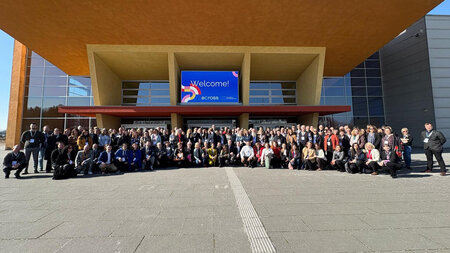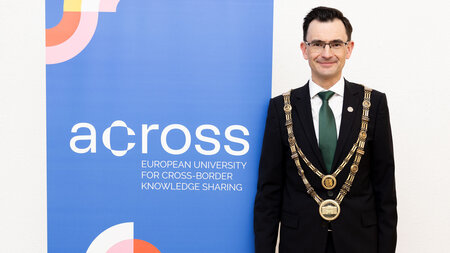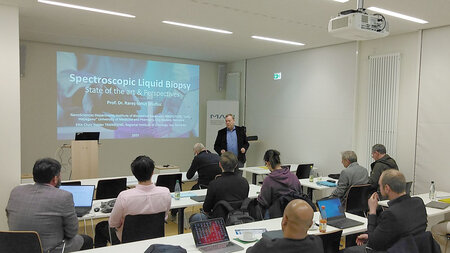Eliminating Borders via Cross-Border Cooperation
Chemnitz University of Technology and seven partner universities apply to be a “European Cross Border University”
-

The eight partners in the consortium come from Bulgaria, Germany, France, Latvia, Poland, Romania and Spain. Graphic: Laura Reinhold / Chemnitz University of Technology
Chemnitz University of Technology is now part of a consortium that consists of the following universities: Bialystok University of Technology (Poland), the University of Craiova (Romania), the University of Girona (Spain), the University of Lleida (Spain), the University of Perpignan Via Domitia (France), the Rezekne Academy of Technologies (Latvia) and the University of Ruse (Bulgaria). Under the title of “UNIVERS”, the universities submitted an application for funding as “European Cross Border Universities”. The application was made as part of the European Union’s ERASMUS+ “European Universities” programme.
Both Chemnitz University of Technology and its partner universities in UNIVERS share their experience as a university located near a border. This shared experience is the basis for a unique form of cooperation that is based on the exchange of knowledge, experiences and resources. “The application as a ‘European Cross Border University’ fits very well into our internationalisation strategy, and at the same time, this makes it clear that we are an extremely international and diverse university,” explains President of Chemnitz University of Technology, Prof. Dr. Gerd Strohmeier. “With this joint step, we would like to pool our resources, and for one, provide strong impulses that aid in the successful development of the border regions of our partner locations. Also, we would like to make a contribution to the greater understanding of the dynamics of border regions, and thus also contribute to a greater cohesion of the European Union. Our goal is to develop credible solutions for this special social, economic, cultural and academic situation,” says Prof. Dr. Maximilian Eibl, Vice President for Academic and International Affairs at Chemnitz University of Technology.
Key factors in border regions – European community as a whole
Border regions have their own key issues that shape them, and thus also the European Union as a community that consists of values of different nations and cultures. These include, among others, migration, identity, tourism, comparative law, education and training. The cooperation of the eight partners within the framework of UNIVERS primarily provides for seven work areas in which the consortium wants to pool its common resources, in order to create credible solutions for these key issues. These fields are as follows:
- Joint Academic Management Structures
- Sustainability
- Innovative Curricula
- Social and Environmental Responsibility
- Lifelong Learning
- Research
- University-Business-Society Engagement
Cooperation within UNIVERS will include, among other things, the development of joint study programmes, the exchange of students and employees, and cross-border research and transfer projects. It is about acquiring key competencies in order to meet the challenges of border regions on a social, economic, ecological and scientific level – a contribution to the university partners and their regions, but also a contribution to the European Union as a whole.
(Translation: Jeffrey Karnitz)
Mario Steinebach
26.02.2020





